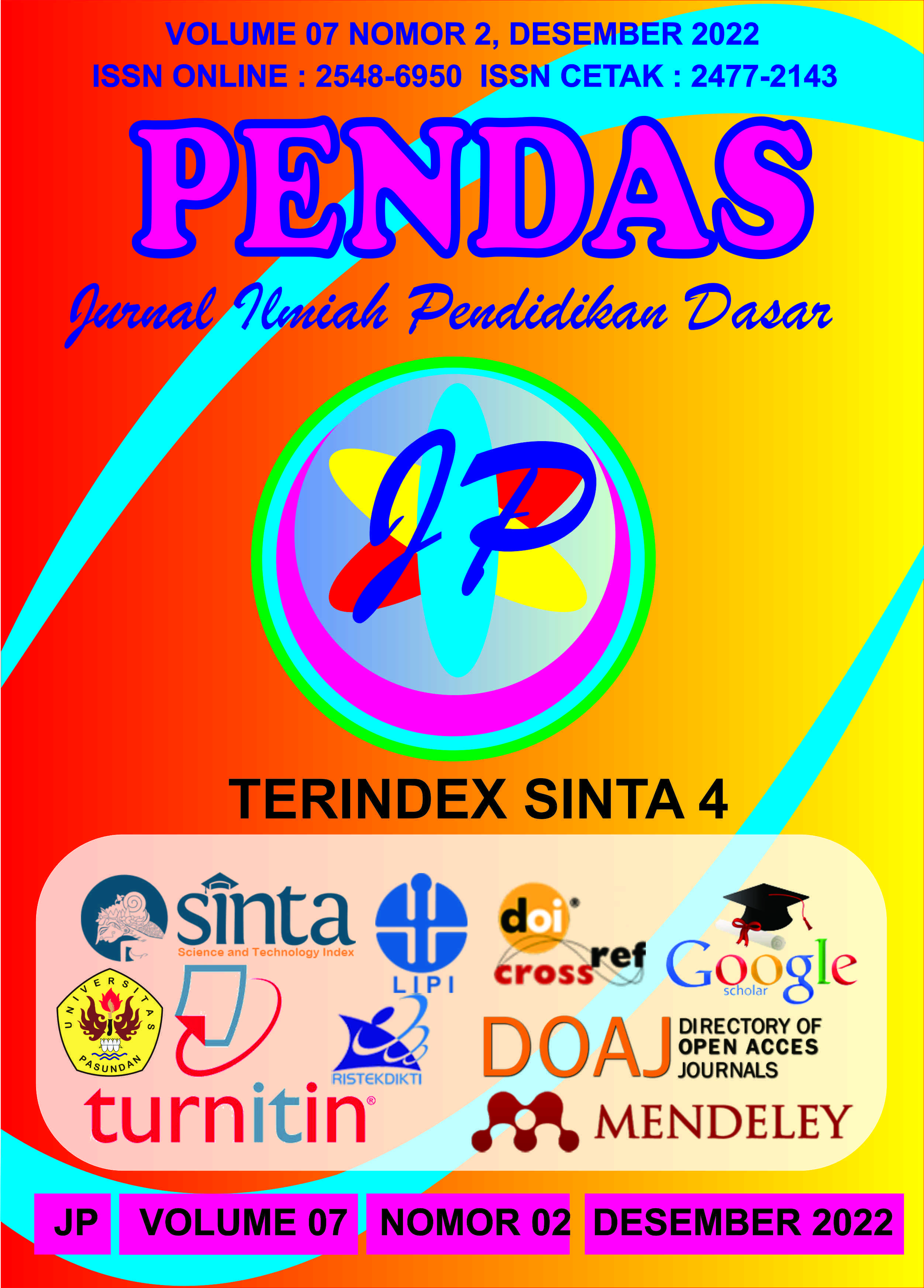PENGARUH MODEL PEMBELAJAN BLENDED LEARNING TERHADAP PEMAHAMAN KONSEP IPA PADA KELAS IV DI SDN SUDIMAMPIR
DOI:
https://doi.org/10.23969/jp.v7i2.7191Keywords:
Blended Learning, Understanding Science ConceptsAbstract
The use of time in the learning process today is very important, because it can affect the understanding of students' concepts, one of which is in science subjects. This research is motivated by the lack of available learning time which is often insufficient to convey the entire learning material, this affects the understanding of science concepts, so it is not fulfilled. On this basis, researchers try and teach science subjects, especially the material properties of sound by using a blended learning model that can be collaborated between face-to-face learning directly and online. So that in this study the formulation of the problem, namely: 1) How is the application of the blended learning learning model to understanding the science concept in class IV at SDN Sudimampir, 2) How is the effect of the blended learning learning model on understanding the science concept after learning using the blended learning model is implemented. This research was carried out at SDN Sudimampir for the 2021/2022 academic year with a research sample of 12 students. The form of the test used is a description test with a total of 10 questions. This research method uses Pre-Experimental Design with One group pretest-posttest research design. The results showed (1) The test was carried out 2 times, the data was collected through a pretest and then given treatment using a blended learning learning model, then a final test (posttest) was carried out and then analyzed using the normality test, homogeneity test, t-test and N-Gain. (2) The results show that the average pretest carried out is 61.11 and for the posttest average is 80.22. After being treated using a blended learning learning model on understanding science concepts, there is a significant effect that can be seen from the N-Gain result of 0.7277 which is included in the high category, this is also supported by the t test results which show the comparison of pretest and posttest results obtained through test results. t with a significance value of 0.000. Based on the test criteria, if the significance value is < 0.05, then H_0 is rejected and H_1 is accepted because there is an effect of the blended learning model on understanding science concepts which is stated to be better than before using the blended learning model because 0.000 <0.05. Thus, learners using the blended learning model have a significant effect on understanding science concepts at SDN Sudimampir.
Downloads
References
Hamalik, Omar. (2007). Psikologi Belajar dan Mengajar. Bandung: Sinar Baru Algensindo
Hasbullah. (2005). Dasar-Dasar Ilmu Pendidikan (Edisirevisi). Jakarta: PT. Raja Grafindo Persada
Husamah. (2014). Pembelajaran bauran (Blended Learning. Jakarta: Penerbit Prestasi Pustakaraya
Kumala, Nur. (2016). Pembelajaran IPA Sekolah Dasar. Malang: Ediide Infografika
Kumala, Nur. (2016). Pembelajaran IPA Sekolah Dasar. Malang: Ediide Infografika
Mariana, Praginda. (2009). Hakikat IPA Dan Pendidikan IPA Untuk Guru SD. Bandung: PPPPTK IPA
Nasution, Nizwardi Dan Syahril. (2019). Buku Model Blended Learning. Padang: Unilak Press
Nurlaeni, Enni. (2016). Penggunaan Quantum Learning Untuk Meningkatkan Pemahaman Siswa Pada Mata Pelajaran IPA. (Skripsi S-1 Prodi PGSD) Subang: STKIP Subang
Oktaviati, dkk. (2014). Perbandingan Tingkat Konsistensi Normalitas Metode Kolomogrof-Smirnof, Liliefors, Shapiro Wilk, dan Skewness-Kurtosis. Surabaya: Universitas Airlangga
Sugiyono. (2013). Metode Penelitian Pendidikan Pendekatan Kuantitatif, Kualitatif, Dan R&D. Bandung: Alfabeta
Wening, Dinda. (2016). Pengaruh Pembelajaran Bauran (Blended Learning) Terhadap Motivasi Dan Hasil Belajar Siswa Pada Materi Relasi Dan Fungsi. (Skripsi S-1 Pendidikan Matematika) Kediri: Universitas Nusantara PGRI
Winata, A. & Retnowati, T. H. (2016). Pengaruh Penggunaan Waktu Menonton Televisi, Internet, Dan Heandphone Terhadap Disiplin Belajar Siswa Di Lombok. Social, 1-12
Downloads
Published
Issue
Section
License
Copyright (c) 2023 Pendas : Jurnal Ilmiah Pendidikan Dasar

This work is licensed under a Creative Commons Attribution 4.0 International License.



















